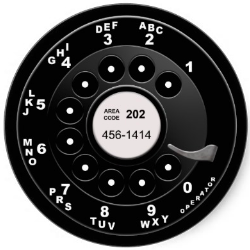Hobbyist Computing and Personal Clouds

One of the benefits of growing old is the historical perspective offered by advancing age. I have been privileged to be an active participant as the computer industry has literally unfolded before my eyes. Â
The first computer I saw demonstrated, back in 1970, was built by a hobbyist, using flip flops constructed out of discrete transistors and a numeric  Nixie tube display. The input device?  A rotary phone dial.  As an electronics hobbyist myself, I was fascinated by the blinking lights, even though the contraption really wasn’t very useful as an end user device.
Fast forward a few years … As part of my first engineering job, I built my first personal computer in 1978, predating the IBM PC by three years.  It was based on the Texas Instruments 9900 microprocessor, one of the first 16-bit microprocessors. I designed and built the color graphics display board and modified a Sony Trinitron TV to be the color monitor. I had to design and debug the circuitry, work with others to design the chassis and circuit boards and solder in all the chips.  I used an original Soroc terminal and Epson TX-80 dot matrix printer.  The computer had a rudimentary operating system and simple text editor.  I thought I was in heaven!  For a geek like me, I had both the joy of experimentation and emerging productivity for my work.
My next big step forward was getting one of the original Compaq luggable PCs – complete with two 256k 5-1/4 inch floppy drives (no hard drive). It was a great step forward in packaging, but the real benefit was the software - WordPerfect word processor and Lotus123 spreadsheet.  My productivity really accelerated.  And I didn’t have to build anything. (By the way, I still have that computer!)
Of course, the MacBook Air I use now is almost infinitely more capable than the those old relics. Â We have come a long way.
What does this have to do with Personal Clouds? I somehow get the feeling we are still in the hobbyist phase. Â A lot of blinking lights and personal tinkering and vision of the future, but not a lot of real utility and tangible benefits.
Don’t get me wrong – I really like the concept of personal clouds.  I like the promise of  better privacy, better personal control over my information, easier to use Identity and payments infrastructure and unifying functionality in a virtual container in the cloud. I salute those who are working to transform vision into reality.
But at this time in my life, I tend to be impatient. I want my MacBook Air when all that is available is Nixie tubes and rotary phone dials.  I’d like to see the next Apple emerge or some stodgy old IBM-like company leverage their market presence and offer Personal Cloud infrastructure that is really easy to use and really useful to old fogies like me.
Who will it be?
Â
